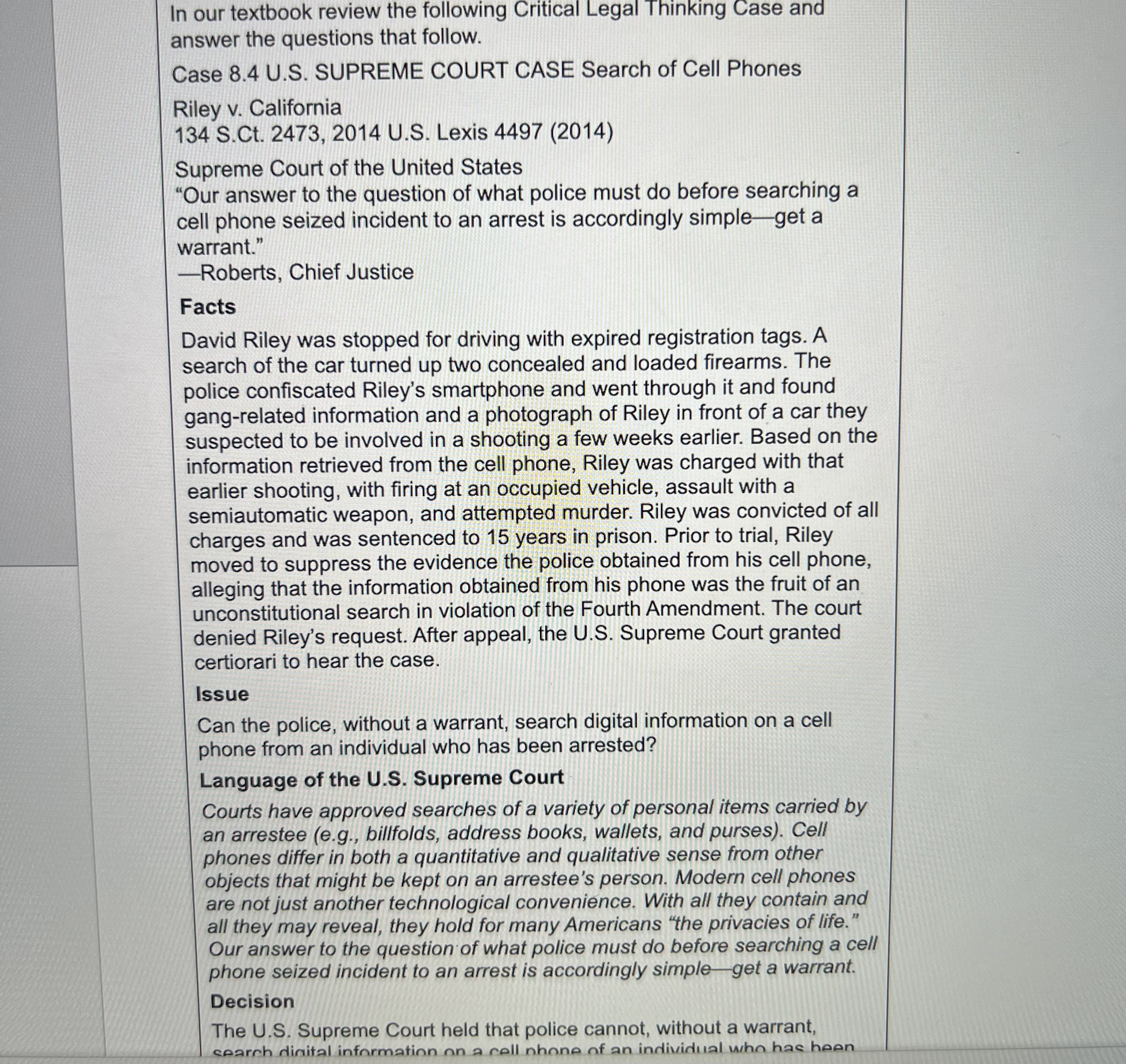Answered step by step
Verified Expert Solution
Question
1 Approved Answer
In our textbook review the following Critical Legal Thinking Case and answer the questions that follow. Case 8 . 4 U . S . SUPREME
In our textbook review the following Critical Legal Thinking Case and
answer the questions that follow.
Case US SUPREME COURT CASE Search of Cell Phones
Riley v California
SCt US Lexis
Supreme Court of the United States
"Our answer to the question of what police must do before searching a
cell phone seized incident to an arrest is accordingly simple get a
warrant."
Roberts, Chief Justice
Facts
David Riley was stopped for driving with expired registration tags. A
search of the car turned up two concealed and loaded firearms. The
police confiscated Riley's smartphone and went through it and found
gangrelated information and a photograph of Riley in front of a car they
suspected to be involved in a shooting a few weeks earlier. Based on the
information retrieved from the cell phone, Riley was charged with that
earlier shooting, with firing at an occupied vehicle, assault with a
semiautomatic weapon, and attempted murder. Riley was convicted of all
charges and was sentenced to years in prison. Prior to trial, Riley
moved to suppress the evidence the police obtained from his cell phone,
alleging that the information obtained from his phone was the fruit of an
unconstitutional search in violation of the Fourth Amendment. The court
denied Riley's request. After appeal, the US Supreme Court granted
certiorari to hear the case.
Issue
Can the police, without a warrant, search digital information on a cell
phone from an individual who has been arrested?
Language of the US Supreme Court
Courts have approved searches of a variety of personal items carried by
an arrestee eg billfolds, address books, wallets, and purses Cell
phones differ in both a quantitative and qualitative sense from other
objects that might be kept on an arrestee's person. Modern cell phones
are not just another technological convenience. With all they contain and
all they may reveal, they hold for many Americans "the privacies of life."
Our answer to the question of what police must do before searching a cell
phone seized incident to an arrest is accordingly simple get a warrant.
Decision
The US Supreme Court held that police cannot, without a warrant,
coarch dinital infnrmation on a cell nhone of an individual wha hac hean

Step by Step Solution
There are 3 Steps involved in it
Step: 1

Get Instant Access to Expert-Tailored Solutions
See step-by-step solutions with expert insights and AI powered tools for academic success
Step: 2

Step: 3

Ace Your Homework with AI
Get the answers you need in no time with our AI-driven, step-by-step assistance
Get Started


